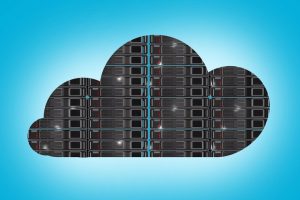Cloud VPS vs Traditional VPS: Key Differences and Best Fit for Your Needs
When it comes to hosting your website or application, choosing between a Cloud VPS and a Traditional VPS can be a pivotal decision. Both options have their own set of advantages and disadvantages, but the real difference lies in how they operate, scale, and impact your overall performance. In this article, we’ll dive deep into the nuances of Cloud VPS vs. Traditional VPS to help you make an informed choice.
Understanding VPS Hosting: The Basics
Before delving into the differences between Cloud VPS and Traditional VPS, it’s essential to grasp the foundational concept of VPS hosting. A Virtual Private Server (VPS) is a virtualized server that operates within a physical server. It’s partitioned into multiple virtual servers, each with its own operating system, resources, and dedicated space. This setup provides users with the benefits of a dedicated server without the hefty price tag.
Key Features of VPS Hosting:
- Isolation: Each VPS operates independently, ensuring that other users on the same physical server don’t affect your performance.
- Scalability: You can scale resources like RAM, CPU, and storage as needed.
- Customization: You have full control over the server’s configuration, including the operating system, applications, and security settings.
Traditional VPS and Cloud VPS both adhere to these principles but differ significantly in their architecture and operational models. Let’s explore these differences in detail.
Cloud VPS: The Modern Approach to Hosting
Cloud VPS hosting is a modern solution that leverages the power of cloud computing. Unlike Traditional VPS, which runs on a single physical server, Cloud VPS utilizes a network of interconnected servers to distribute resources. This distributed architecture offers several advantages that make it stand out in today’s digital landscape.
Key Characteristics of Cloud VPS:
- Scalability: Cloud VPS allows for seamless scaling of resources on-demand. Whether you need more storage, bandwidth, or computing power, Cloud VPS can accommodate your needs without downtime.
- Redundancy: With multiple servers backing your VPS, Cloud VPS offers high availability and redundancy. If one server fails, another takes over, ensuring your services remain uninterrupted.
- Cost Efficiency: Cloud VPS typically operates on a pay-as-you-go model, meaning you only pay for the resources you use. This can lead to significant cost savings compared to Traditional VPS.
One of the most significant benefits of Cloud VPS is its ability to handle fluctuating traffic loads. Businesses experiencing seasonal spikes or sudden surges in traffic can rely on Cloud VPS to scale resources instantly, preventing downtime and ensuring a smooth user experience.
Traditional VPS: The Tried-and-True Option
Traditional VPS, also known as On-Premise VPS, has been a popular hosting solution for years. Unlike Cloud VPS, Traditional VPS runs on a single physical server, which means all resources are dedicated to that specific server. While this approach has its limitations, it also offers distinct advantages, particularly for users with specific requirements.
Key Characteristics of Traditional VPS:
- Predictability: Traditional VPS provides a fixed amount of resources, making it easier to predict performance and costs. This is ideal for businesses with stable traffic patterns.
- Control: Users have full control over the server, including the ability to install custom software, configure security settings, and optimize performance for specific applications.
- Lower Latency: Since Traditional VPS runs on a single server, it often offers lower latency compared to Cloud VPS, which may involve data transfer between multiple servers.
However, Traditional VPS does come with its set of challenges. Scalability is limited, as the resources are bound to the physical server. If your business experiences rapid growth or unexpected traffic spikes, you may need to upgrade to a higher-tier plan or migrate to a new server, which can be time-consuming and expensive.
Comparing Cloud VPS and Traditional VPS: Key Differences
Now that we’ve covered the basics of both Cloud VPS and Traditional VPS, let’s compare them side by side to highlight the key differences that set them apart.
1. Architecture:
- Cloud VPS: Utilizes a network of interconnected servers, providing scalability and redundancy.
- Traditional VPS: Operates on a single physical server, offering predictability but limited scalability.
2. Scalability:
- Cloud VPS: Seamlessly scales resources on-demand, accommodating fluctuating traffic loads.
- Traditional VPS: Limited scalability, requiring manual upgrades or migration to a new server.
3. Redundancy and Uptime:
- Cloud VPS: High availability with redundant servers, ensuring minimal downtime.
- Traditional VPS: Single-server architecture increases the risk of downtime in case of hardware failure.
4. Cost:
- Cloud VPS: Pay-as-you-go model, offering cost efficiency for businesses with variable resource needs.
- Traditional VPS: Fixed pricing structure, suitable for businesses with stable resource requirements.
5. Latency:
- Cloud VPS: Potentially higher latency due to data transfer between multiple servers.
- Traditional VPS: Lower latency, as the server is dedicated to your VPS.
Each of these differences highlights the unique strengths and weaknesses of Cloud VPS and Traditional VPS. The right choice depends on your specific needs, budget, and long-term goals.
Which Should You Choose? Factors to Consider
Choosing between Cloud VPS and Traditional VPS isn’t a one-size-fits-all decision. Several factors come into play, and understanding your requirements is crucial to making the right choice.
1. Business Size and Growth:
- If you’re a small business with stable traffic and limited growth potential, Traditional VPS might be sufficient. Its predictable performance and cost structure make it a reliable choice.
- For businesses experiencing rapid growth or expecting fluctuating traffic, Cloud VPS is the better option. Its scalability and redundancy ensure that your platform can handle increased demand without downtime.
2. Budget:
- Traditional VPS is often more cost-effective for businesses with fixed resource needs. The upfront cost is lower, and you avoid the variable expenses associated with Cloud VPS.
- Cloud VPS is ideal for businesses looking to optimize costs through a pay-as-you-go model. While the initial cost may be higher, the flexibility to scale resources as needed can lead to long-term savings.
3. Performance Requirements:
- If low latency and high performance are critical for your application, Traditional VPS might be the better choice. Its single-server architecture minimizes data transfer and reduces latency.
- For applications that require high availability and failover capabilities, Cloud VPS offers the redundancy and scalability needed to maintain performance during peak times.
4. Technical Expertise:
- Traditional VPS requires a higher level of technical expertise, as users have full control over server configuration and maintenance. This is ideal for businesses with an in-house IT team.
- Cloud VPS is more user-friendly, with many providers offering managed services to handle server management. This is ideal for businesses without extensive technical knowledge.
Ultimately, the decision between Cloud VPS and Traditional VPS hinges on your unique business requirements. Carefully evaluate your traffic patterns, budget, and technical capabilities to make an informed choice.
In the dynamic world of web hosting, understanding the differences between Cloud VPS and Traditional VPS is crucial. Cloud VPS offers unparalleled scalability, redundancy, and cost efficiency, making it an attractive option for growing businesses. On the other hand, Traditional VPS provides predictability, control, and












